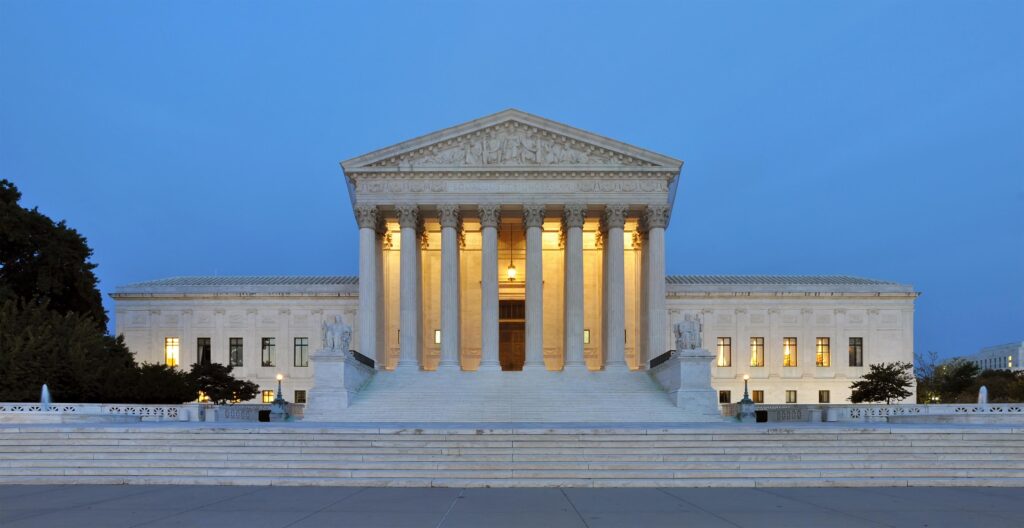The Supreme Court’s recent ruling on gender classification in sports has been hailed as a significant victory for women’s athletics, according to Lord Coe. Speaking exclusively to the BBC, the former Olympic champion and influential sports administrator praised the decision, emphasizing its positive impact on fairness and competition in women’s sports. The ruling, which addresses complex issues surrounding eligibility criteria, marks a pivotal moment in the ongoing debate over inclusivity and equality in athletics.
Supreme Court Decision Sets New Precedent for Gender Equality in Sports
The recent Supreme Court ruling has been hailed as a landmark moment for women’s sports, reflecting a decisive move towards equality and fairness. Lord Coe, a prominent figure in the sporting world, emphasized that the decision not only protects female athletes’ rights but also encourages wider participation by setting clear standards. The judgment addresses long-standing disparities and promises to reshape how sports bodies manage gender classifications, ensuring competitive opportunities remain inclusive and just.
This development brings significant implications for governing bodies, athletes, and fans alike. Key elements highlighted in the ruling include:
- Equal access to competition without discrimination.
- A call for transparent policies based on scientific evidence rather than outdated norms.
- Encouragement for investment in women’s sporting events to elevate their profile globally.
| Impact | Details |
|---|---|
| Policy Reform | Sports organizations revising gender eligibility rules |
| Athlete Support | Increased funding and resources for women’s programs |
| Public Awareness | Heightened media coverage and positive discourse |
Lord Coe Emphasizes Positive Impact on Female Athlete Opportunities and Fair Competition
Lord Sebastian Coe has praised the recent Supreme Court decision, noting its significant role in enhancing opportunities for female athletes at all levels of sport. He highlighted how the ruling reinforces fair competition by ensuring that women’s sport remains a space where biological advantages are carefully considered. According to Coe, this landmark judgment helps safeguard the integrity of female competitions, thereby encouraging more participation and investment in women’s athletics worldwide.
In his remarks, Lord Coe outlined several positive outcomes from the ruling:
- Increased opportunities: More dedicated pathways for female athletes to succeed on a level playing field.
- Clarity in regulations: Clearer guidelines for sport governing bodies on eligibility criteria.
- Promotion of fairness: Protection of competitive fairness without compromising inclusivity.
| Aspect | Impact |
|---|---|
| Participation | Growth in female athlete engagement |
| Competition Integrity | Enhanced fairness in women’s events |
| Policy Development | Stronger guidelines for eligibility |
Experts Call for Updated Guidelines to Support Inclusivity While Protecting Women’s Sporting Integrity
Leading figures in the sports community are urging governing bodies to revisit and modernize policies that balance inclusivity for transgender athletes with the preservation of competitive fairness for cisgender women. The call comes amid growing debates sparked by recent legal decisions impacting eligibility criteria in women’s sports. Experts emphasize that any updated framework must be rooted in robust scientific evidence and a nuanced understanding of physiological differences to protect the integrity of women’s competitions.
Key recommendations being highlighted include:
- Comprehensive hormone level monitoring protocols
- Transparent eligibility review processes
- Development of education programs to foster inclusivity and respect among athletes
- Collaboration between medical professionals, athletes, and policy makers
| Aspect | Purpose | Example |
|---|---|---|
| Hormonal Assessment | Ensure physiological fairness | Testosterone thresholds |
| Eligibility Reviews | Maintain transparency | Regular documentation audits |
| Education Initiatives | Promote acceptance | Workshops on inclusivity |
| Collaborative Policy Making | Integrate diverse expertise | Joint committees of doctors, athletes, and officials |
Sports Organizations Urged to Implement Clear Policies Following Landmark Ruling
In the wake of the Supreme Court’s landmark decision, sports organizations across the UK are under increasing pressure to develop clear and comprehensive policies that address gender eligibility in competition. Lord Sebastian Coe, a prominent advocate for women’s sport, emphasized the importance of this ruling in safeguarding fair competition and ensuring that female athletes have access to a level playing field. Governing bodies are now being urged to collaborate with legal experts, athletes, and advocacy groups to formulate guidelines that balance inclusivity with competitive integrity.
Key priorities for organizations moving forward include:
- Establishing transparent criteria for gender classification and participation.
- Implementing education programs to raise awareness on the implications of the ruling.
- Creating oversight committees to review and update policies regularly.
| Policy Element | Purpose | Potential Impact |
|---|---|---|
| Clear Eligibility Standards | Define participation based on verified criteria | Ensure fairness; reduce disputes |
| Regular Policy Reviews | Adapt to legal and social developments | Maintain relevance; build trust |
| Education & Outreach | Promote understanding among stakeholders | Foster inclusivity; minimize misconceptions |
To Conclude
The Supreme Court’s ruling marks a significant moment in the ongoing dialogue surrounding gender and competitive sport. As Lord Coe highlights, the decision is a positive step for women’s athletics, reinforcing fairness and integrity in competition. The ruling is expected to influence policy and practice across sports organizations, shaping the future landscape for female athletes.





